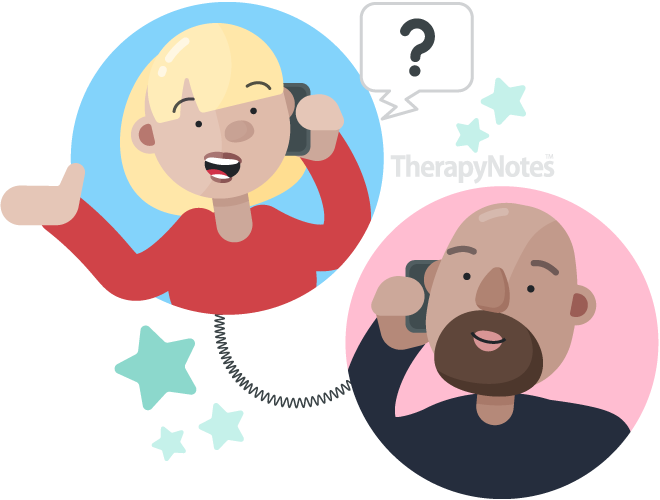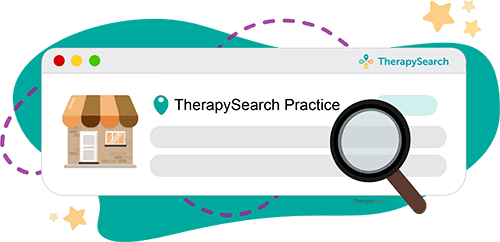6 Tips for Improving Your Interviewing System
By Maureen Werrbach, LCPC on July 14, 2021

One of the trickiest parts of owning a group practice is building a solid interviewing system that brings in your ideal clinicians. Whether you’re just starting out and bringing on your first hire, or you’re more established and have been hiring for years, the folks we hire in our practices set the tone for the culture and success of the practice. Therefore, it’s important to find a system that works for your business. Interviewing without having a set process can lead to a lot of wasted time on your end as a business owner, and can also lead to some hiring hiccups down the road.
Here’s what I’ve learned about improving my interview process over the year.
Figure Out Your Ideal Clinician
The first trick to fine-tuning your interview system is to decide who your ideal clinician is. What exactly is it that you’re looking for? Your ideal clinician can change from hire to hire, depending on your needs. What are you willing to compromise on, and what are your deal breakers? It can be easy to connect with someone face to face in the interview and lose track of the specifics of what you need, so make sure to specify what kind of experience you want them to have. For example: the type of license you’re looking for, the amount of time you’ll have to invest in that person, if you’re going the 1099 or W2 route, personality and characteristics, values alignment, and the shifts you’re looking to fill and their availability.
Be Clear About Your Expectations
The number one reason why employees leave a group practice quickly after being hired is due to the business owner not being transparent about what was expected of them. This is a solvable problem, thankfully. You need to get clear on your expectations and stick to them. Let them know exactly what will be expected of them. Are they supposed to network or market themselves? Are they expected to write blogs or record videos for social media? Anything that you expect them to do outside of seeing clients and completing documentation should be spelled out.
Put Instructions in Your Application
Application instructions can be the first place to screen for your ideal therapists. Do you want a cover letter? Where should they be sending documents for their application? Should they send in their resume, CV or both? Do you want to have applicants record an intro video as part of the screening process? This can save you a step in the interviewing process because it gives you a chance to see their communication style and how they engage with technology—which is especially important these days as folks rely on telehealth.
Have an Extra Screening for Non-negotiables
You can simply do this through something like Google Forms. Your non-negotiables will vary based on the values and needs of your practice, but some you might screen for are:
- Are you fully licensed in your state?
- Do you have a niche?
- What certifications or previous experience do you have in your niche?
- What is your hourly availability per week?
- What is your ideal schedule?
- Do you have previous experience in private practice?
- Are you employed anywhere else?
- Why do you want to work in a group practice?
- What are your long term goals personally and professionally?
Do a Phone Screen
I also like to do a screening over the phone to make sure that the person is a good fit before bringing them in for a face-to-face interview. I let them know that it will just be about 15 minutes, so they know the time investment beforehand, and ask them questions to get a sense of who they are. This is another place to screen for your non-negotiables to make sure that you’re only bringing in folks who meet the criteria. This phone screening also gives us a chance to get to know their communication style and personality a bit more, and it gives us a chance to make sure our values align.
Have the Interview with Multiple Staff Members
Another valuable interviewing tip is to have potential hires interview with multiple members of your team. This way you can get more feedback on if they’ll be a good fit, you can see how they interact with your team, and you can get another perspective from someone who already knows what it’s like to work in your practice.
Hiring new clinicians is an important part of group practice, but it’s not something we really get trained to do in school. I suggest that you play around a bit with these ideas and see what is a good fit for you and your practice culture to see if you can improve your interviewing system. The main goal is that you have a system for screening for your ideal therapist and that you get several touchpoints with that person before hiring them. You got this!
* The content of this post is intended to serve as general advice and information. It is not to be taken as legal advice and may not account for all rules and regulations in every jurisdiction. For legal advice, please contact an attorney.
About Maureen Werrbach, LCPC
Get more content like this, delivered right to your inbox. Subscribe to our newsletter.
More Content You'll Enjoy

Converting Clients

What's New: Introducing Practice Profiles in TherapySearch!
